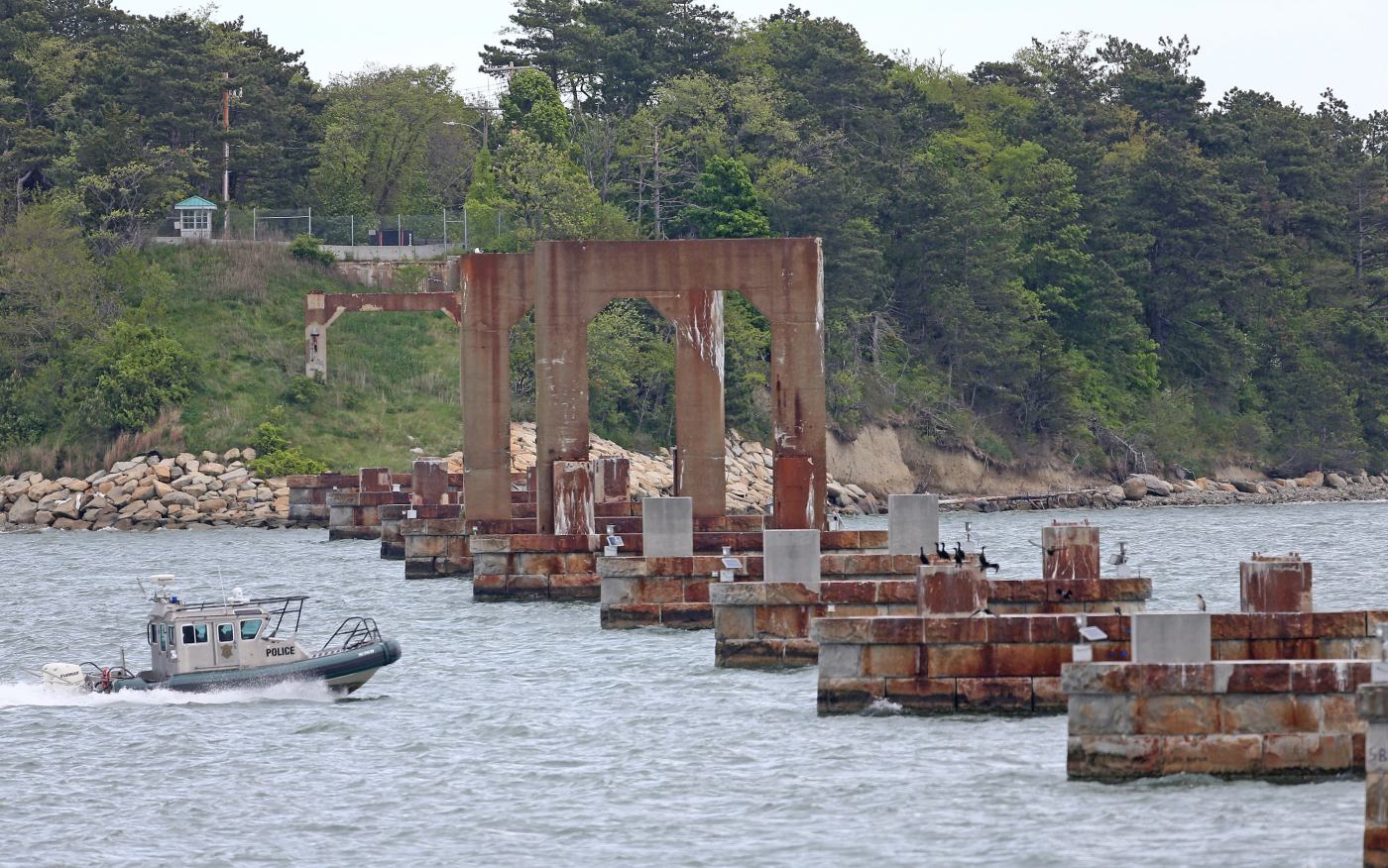
Massachusetts lawmaker floats ferry alternative to Boston’s Long Island bridge plan
A state lawmaker from Quincy is pushing for legislation to study the cost of implementing a ferry service to Long Island, which he sees as a better approach than Boston’s plan to rebuild a bridge out to a future addiction-recovery campus.
State Rep. Bruce Ayers filed a bill that would create a special commission dedicated to studying the “feasibility and efficacy of establishing, operating and administering a ferry service to Long Island” in Boston Harbor.
“I introduced this legislation because the issue of access to Long Island continues to receive a lot of attention, yet there seems to be a lack of information available on all the options for means of access,” Ayers told the Herald.
“The cost of rebuilding the former Long Island bridge is known to be in the $150-plus million range, yet the alternative that is frequently brought up is a ferry service and we don’t know the cost of that potential option.”
The bill states that a potential 11-member commission, consisting of House, Senate and gubernatorial appointees along with designees of the mayors of Boston and Quincy, would analyze other ferry services offered by the state to “identify and project the potential cost” for operating a new ferry route to Long Island.
Ayers said the ferry alternative is a popular option among Quincy elected officials, including the city’s Mayor Thomas Koch who previously told the Herald that recreating bridge access to Long Island would exacerbate traffic and safety issues.
Establishing a ferry service, by expanding on existing pier and dock infrastructure that allows youth and staff to access a summer camp each year on the island, would likely be more “cost-effective” than building a new bridge, Ayers said.
It would also be a quicker way to get there, he asserts. A trip from Quincy’s Squantum neighborhood to downtown Boston, via the bridge, may take upwards of an hour in morning traffic, Ayers said, whereas a ferry may get there in 15 minutes.
The proposed bill is the latest Quincy-led effort to prevent the City of Boston from implementing its years-long plan to tackle the opioid epidemic by building a bridge out to a future 35-acre addiction recovery campus on Long Island.
Related Articles
City Council looks to make it easier to become a street vendor
Boston donates 2,000 turkeys to needy families for Thanksgiving
Enrique Pepén broke state law by promoting fundraiser on personal social media account: OCPF
Boston City Council weighing voting rights for immigrants with ‘legal status’
Boston City Council passes trafficking ordinance to target gun violence
Koch, Quincy’s mayor, has committed to appealing every permit approval that Boston receives for the bridge, the latest of which occurred in August and was characterized by Boston Mayor Michelle Wu as a green light to move forward with the project.
“We can’t waste any more time with this project,” Wu said at the time. “It’s about creating an island of opportunity that will connect people to the lives and community and pathways that they deserve.”
Wu estimates that a new bridge and the first phase of a recovery center will be built within four years.
Boston city officials said a new bridge will cost more than $100 million, and are conducting a design process to calculate an updated cost for building a full-scale recovery campus, which was previously estimated at $540 million.
Campus construction, which largely consists of repairing and stabilizing 11 principle buildings, is expected to start in the spring of 2024 and be completed in 16 to 24 months, city officials said.
Wu announced the latest movement on the Long Island bridge this past summer, when violence and open-air drug use in the Mass and Cass zone had reached what she described as a “new level of public safety alarm.”
Police began clearing tents and tarps there earlier this month, after the City Council passed Wu’s anti-encampment ordinance, a component of the mayor’s three-pronged plan for tackling crime and homelessness on Methadone Mile.
Citing prior estimates for building a new bridge and recovery campus, Ayers said “taxpayers deserve to know if there is a more cost-effective option for access” to Long Island.
“I commend the City of Boston for looking to establish a drug addiction treatment facility, but this legislation, if passed, could demonstrate a more cost-effective means of transit to the island, and the money saved could be used instead to bolster the treatment services on the island,” Ayers said.

